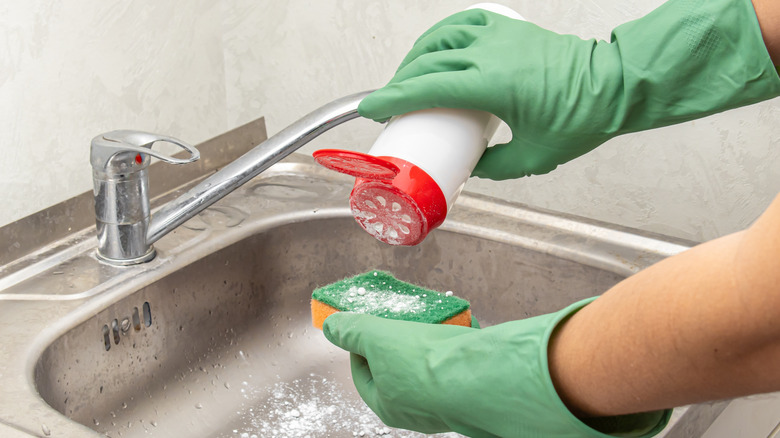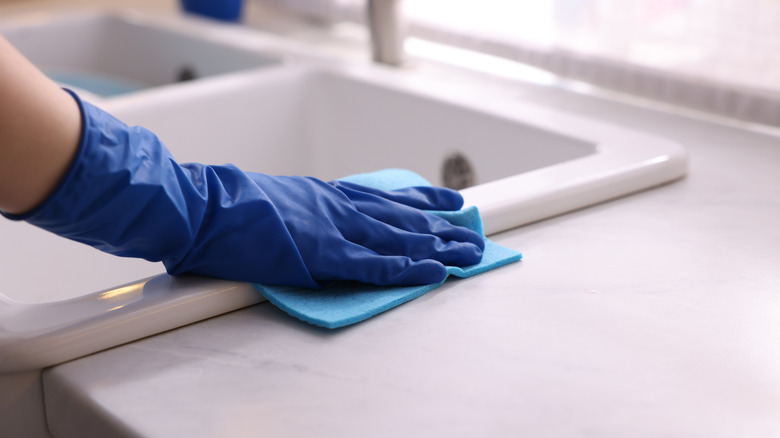Can Powdered Cleansers Actually Scratch Your Expensive Sink?
What you do in your bathroom is your business, but when it comes to cleaning your sink, materials matter. No one wants to live in a house with gross, grimey, unkempt spaces. Ultimately, it's even worse the dirty feature has a hygienic purpose, like your sink. If you crave that shiny clean, a powdered cleanser might offer a bit of grit to fight grime and build-up, but depending on your sink's material, you might want to think twice before using powdered cleansers like Comet on some surfaces. The mild abrasive in powdered cleaners can scratch some sink materials, including porcelain, composite, and some metals.
Consider a porcelain sink, for example. These sinks can be very expensive and elegant-looking, but they have a porcelain coating, which is a brittle material with a tendency to scratch. When cleaning porcelain sinks, it's best to avoid any abrasive tools and cleansers that may damage the finish. While the lightly abrasive nature of a powdered cleanser may help to clear out gunk, any harsh scrubbing can damage the finish, so it's important to weigh the risk and reward.
Very few sink materials can handle powdered cleansers
When it comes to powdered cleansers, there is only one material that is overall safe to work with: fireclay sinks. Due to the high temperatures used in crafting fireclay, these sinks are heat, stain, scratch, and chip resistant. In the event of gunk buildup, it is safe to use a mildly abrasive cleaner, such as a powdered cleanser, on fireclay.
The best methods for cleaning other sink materials will vary, but when in doubt, avoid using any powdered cleansers. If you want to care for a pricey porcelain or composite sink, consider using gentler cleaning substitutes to get the job done and allowing the cleaner to sit before rinsing and wiping away. For regular cleaning, use a microfiber cloth or soft sponge, warm water, and liquid dish soap. Wipe down the sink and rinse to remove buildup from the surface. Once you rinse away any surface gunk, you'll be able to acknowledge any staining and deeper impurities.
If you have a stainless steel sink, the right cleaning method may vary depending on its finish. With a satin stainless finish, an occasional powdered cleanser may be perfectly acceptable, but with a high-gloss mirror finish, any abrasive could damage the seal. This is just one of many sink materials that are considered vulnerable to scratching. Cast iron, copper, natural stone, and glass sinks are also prone to scratching and require softer cleaning materials. Copper and brass-plated sinks are also a luxe-looking sink material that you're better off avoiding due to more elaborate maintenance needs.

